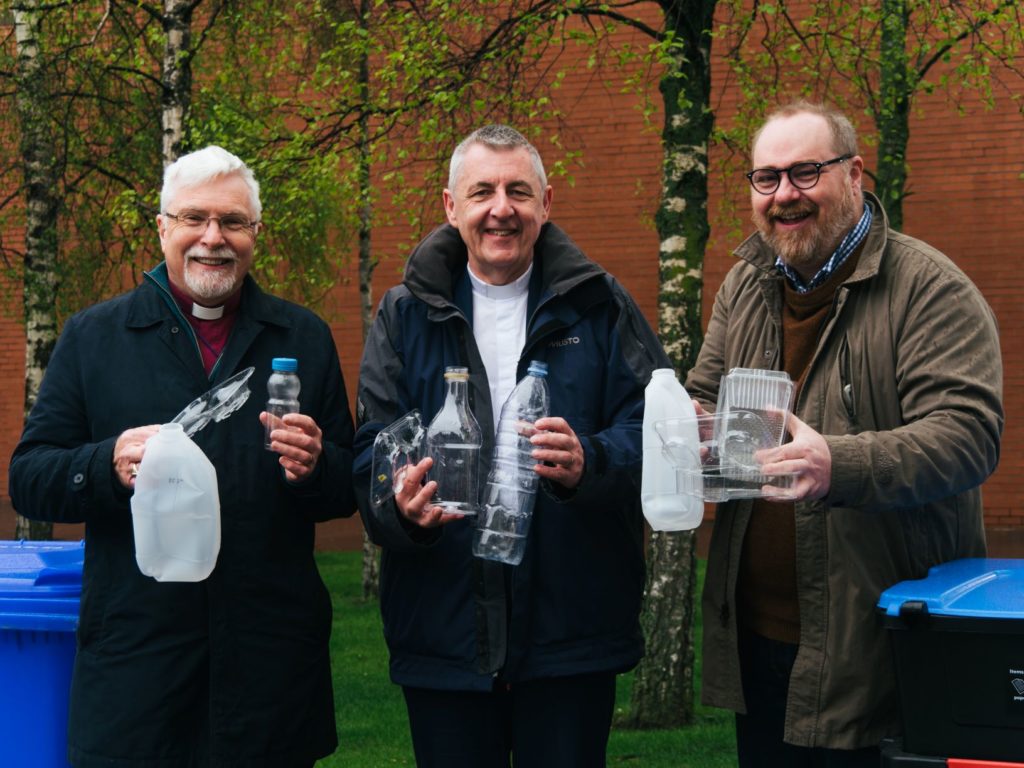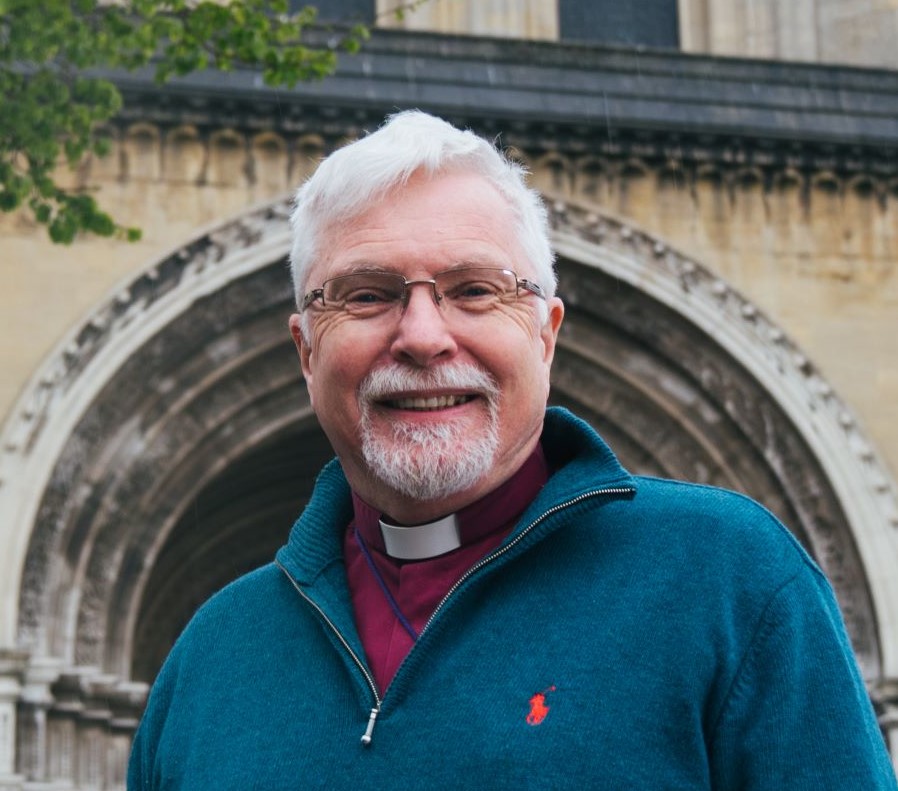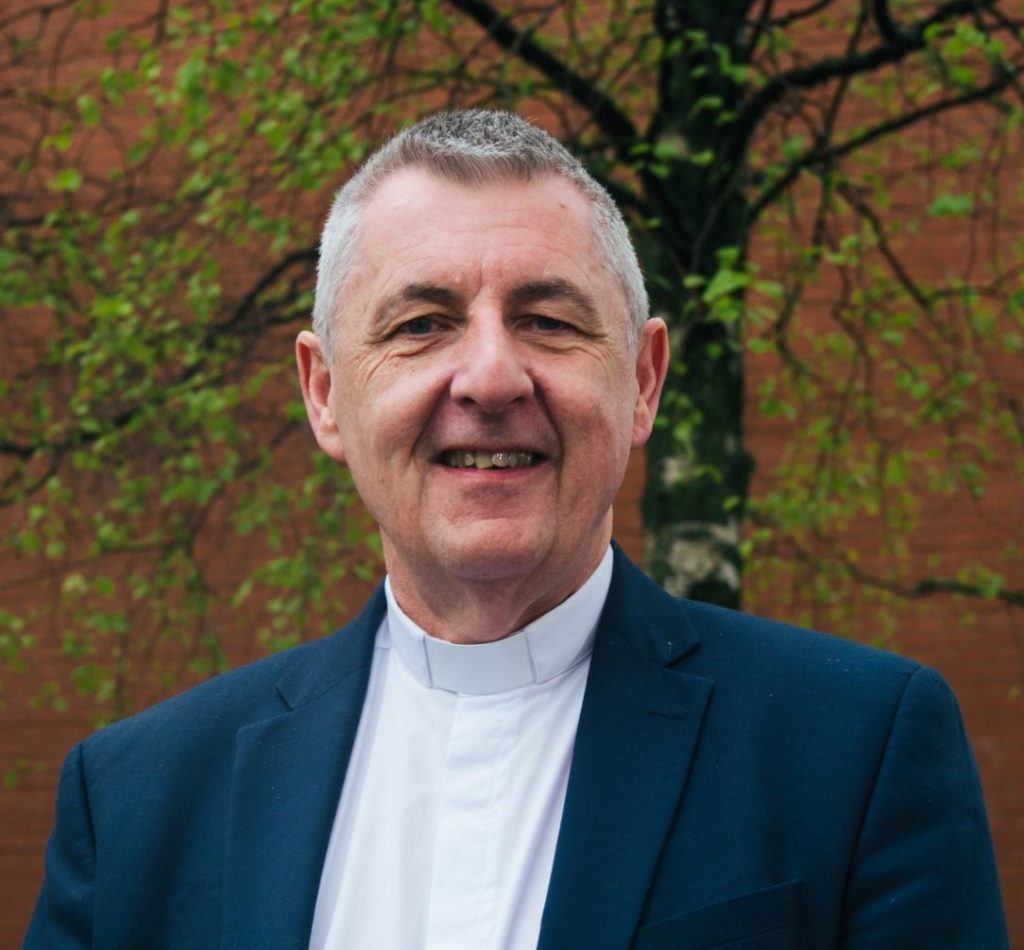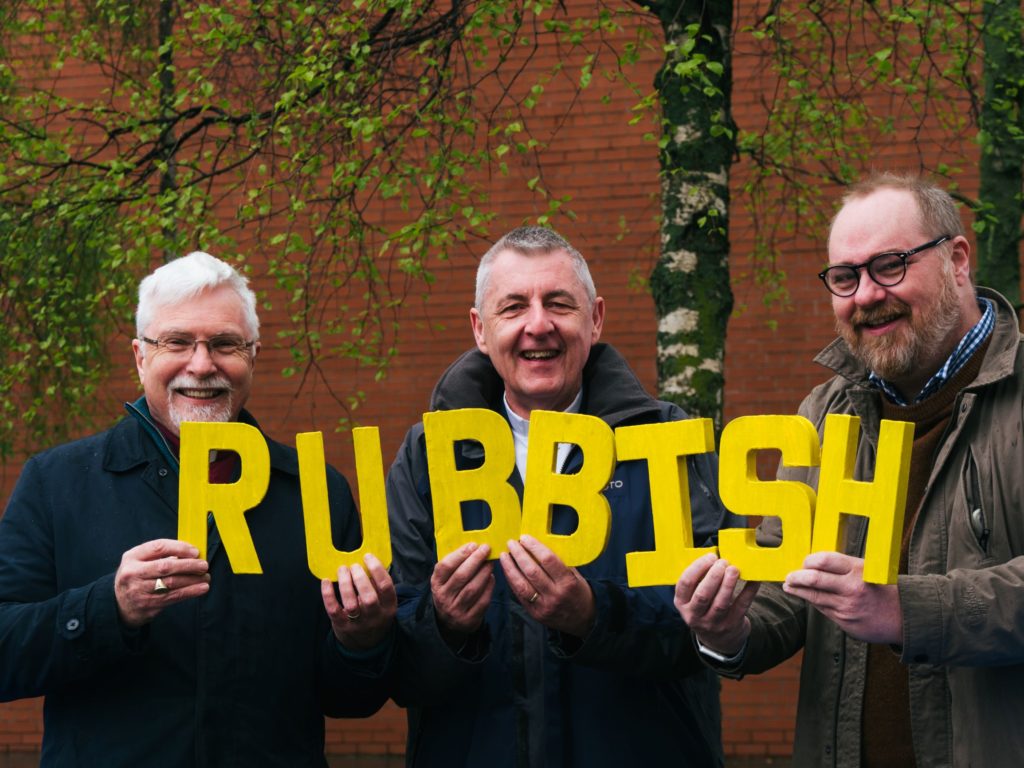Tearfund and NI Church Leaders highlight plastic pollution
Tearfund and NI Church leaders, Bishop Harold Miller and Presbyterian Moderator Rev Charles McMullen, are highlighting the need to take plastic pollution seriously.
The article from Tearfund, below, including comments from both ministers explains more –
Prominent NI church-leaders go plastic-free as report finds someone dies every 30 seconds due to plastic pollution and rubbish
- Bishop Harold Miller and Presbyterian Moderator Charles McMullen are highlighting the problem of plastic pollution and its effects on the world’s most vulnerable by going plastic-free
- New research published by charity Tearfund and backed by Sir David Attenborough finds one person dies every 30 seconds due to plastic pollution and rubbish
- Open-air burning of plastic and rubbish in developing countries adds to carbon emissions, contributing to climate change
- Multinational companies selling single-use plastic in developing countries must make fundamental changes to business models to halt health crisis

Plastic-free challenges
Having undertaken ‘plastic-free’ challenges earlier this year, Presbyterian Moderator Charles McMullen and Bishop Harold Miller are now calling on Coca-Cola, PepsiCo, Nestle and Unilever to take responsibility for their plastic waste in developing countries. They are also encouraging people across Northern Ireland to reduce their own use of plastic.

Bishop Harold Miller was at Tearfund’s Theological Committee meeting when he had a eureka moment: “Someone said they had been trying to reduce their use of plastic. I wondered if it was possible to get back to Belfast from London without using any. I found it impossible to find anything not wrapped in plastic! Suddenly I saw it in the same way as I saw smoking when I was a teenager. People smoked on buses, planes, cafes…I thought it was completely normal, until it was banned and saw it with different eyes. Poor waste management is every bit as dangerous as smoking to the life of the planet, to the lives of people. It’s dangerous to us.”
Bishop Miller’s comments come after a new report by international relief and development agency Tearfund in collaboration with conservation charity Fauna & Flora International (FFI), the Institute of Development Studies and waste management charity WasteAid, has revealed for the first time that one person is dying every 30 seconds in developing countries from diseases and illnesses caused by plastic pollution and uncollected rubbish dumped or burnt near homes.
The report calls on four multinational companies to fundamentally change their business models by committing to reporting the number of single-use plastic items they distribute in developing countries by 2020, and halving this by 2025.
Tearfund calls for action to reduce plastic pollution
Ruth Koch, NI Director at Tearfund said: “We are calling for urgent action from four multinationals – Coca-Cola, Nestlé, PepsiCo and Unilever. They sell billions of products in single-use plastic packaging in countries where waste isn’t collected, in the full knowledge that people will have no choice but to burn it, discard it in waterways or live among it.”
“The CEOs running these multinationals can no longer ignore the human cost of single-use plastic – fundamental changes to business models are urgently required. There is no time to waste.”

On the impact of the environment on the world’s most vulnerable, the Moderator of the Presbyterian Church in Ireland, Charles McMullen, recounts his experience in India: “I visited Tearfund’s work in India in 2015 and saw firsthand the difficult environment that many people in poorer countries are living in.”
“Some parents whose villages had been affected by adverse weather conditions were sending their children to the cities to work – but they were being mistreated and even trafficked. Every action we take to protect creation can be an act to love our global neighbours as ourselves.”
Bishop Harold Miller adds that “the Christian faith is about looking out for our neighbour. It is about sacrifice and what appears to be a tougher way, but a better way. It is a challenge to individualism, a return to the way of thinking that used to inhabit this society in Ireland. I grew up in a working class area of Belfast and everybody was there for each other: if someone didn’t have enough money, somebody would help them out. When my mother was old, neighbours would bring round soup for her every lunchtime. It was part of what it was to live in community. When we live as part of a global community, we are able to consider how our actions affect others.” He continues, ‘‘Companies should promote a circular economy. Things should be reused, and people’s skills should be developed: that is good business.”
“I’m always intrigued by the account of creation, Genesis 1 in the Bible”, notes Rev McMullen: “‘God saw that it was good’. We need to look after it. We can’t say caring for creation is only for those who are passionate about the environment. It is a call for all Christians. It is in our DNA as much as tithing, worship, service.”
Rev McMullen, who is currently finishing his term as Moderator of the Presbyterian Church in Ireland, takes this call personally: “I thought we were quite good. We recycle, we bring our bags to go shopping, we recently started using soap bars. For our challenge, we decided to not use plastic in food packaging. We found it very difficult: everything is covered in plastic – even lettuce! We wondered where to get lettuce that wasn’t wrapped in plastic – I think the solution would have been to grow our own!”
Bishop Harold Miller and his wife, Liz, encountered similar difficulties: “We started saying, ‘I intended to buy more but I couldn’t find anything that wasn’t wrapped in plastic’ while we were shopping. We got some funny looks!”

Tearfund is asking for your support with the ‘Rubbish Campaign’
Tearfund is asking supporters to take on similar challenges by giving up an item of single-use plastic for 40 days: the time it takes to form a habit. “The campaign is an opportunity to make a change. Do something specific”, Bishop Miller advises.
“One thing at a time. Pick something that works for you where you’re at. And then step by step. If you do that it leads to another choice! And pause to consider, to reflect – what can I do differently? Those little steps become incremental,” encourages Charles McMullen.
Rev McMullen also notes the positive steps being taken across Northern Ireland: “Local councils are doing a great job at making recycling easy and normal. Coffee shops are providing incentives for bringing your own cups and schools are becoming much more aware of things like reducing waste and preserving energy.”
The Rubbish Campaign is now live and you can find out much more about it on the Tearfund website here.
